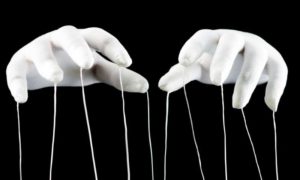We’re hearing an increase in chatter out there about media “conspiracies,” about how the media conspire against conservative politicians, how the media undermine their policies.
Wow! How cool is that?
The president of the United States has been trumpeting the media conspiracy mantra of late. That’s his view. He’s entitled to it.
I feel the need to respond to it using my own frame of reference.
I worked in print journalism full time for nearly 37 years. I worked for newspapers that occasionally got tagged by readers who thought the paper was conspiring to shade the news in favor of certain segments of the community while ignoring other segments.
My response then was this: We don’t have time at our newspaper to conspire against anyone; conspiracies require time to think and plan such activities. Getting a newspaper assembled and pushed out the back door is damn near a miracle every single day. Who has time for conspiracies?
I believe that rationale works at some level in response to the president’s assertion that the media are conspiring against him.
I have heard the comments from the likes of former New York Times editor Jill Abramson who says her former paper forms its political coverage with a tilt against Donald Trump, that there is an anti-Trump bias in the NYT newsroom.
I just try to put myself in the shoes of the front-line reporters and editors who are concerned chiefly with just getting the paper published every day. Do they sit around and ask: How are we going to shade our coverage in a way that puts the president in the most negative light imaginable? I have trouble making that leap.
So the conspiracy talks continues. Maybe it’s just that I am inherently anti-conspiracy by nature.
My own experience working in regular communities in Oregon and Texas tells me that conspiracies require too much work among journalists who struggle with all their might simply at being good at their craft.

Journalists used to report, “Who, What, Where, When and Why” then let the reader form an opinion.
The opinion page was just that, the journalist’s opinion.
Larger Newspapers started years back integrating their opinion into the news stories themselves and distorting the facts in a way that the publisher’s opinion becomes the reader’s opinion.
.
This is not new.
America’s third president was decidedly pro-press, unless the press was covering him
Lindsey Beaver of the Washington Post wrote this;
During his time as U.S. minister to France, Thomas Jefferson penned a letter to a statesman from Virginia, waxing poetic about the importance of a free press.
“The basis of our governments being the opinion of the people, the very first object should be to keep that right,” Jefferson wrote to Edward Carrington in 1787. “And were it left to me to decide whether we should have a government without newspapers, or newspapers without a government, I should not hesitate a moment to prefer the latter. But I should mean that every man should receive those papers and be capable of reading them.”
Those words would help identify the Founding Father as a champion of the press.
But as Jefferson was writing them, scholars say, he did not foresee that newspapers would become a partisan tool for warring political factions in a climate of unrest and uncertainty over the fate of a nascent nation.
By the time he was approaching his presidency, anxieties were high and newspapers had taken a critical stance. Jefferson in turn had taken critical tone with them, at least in his in personal letters, in which he often excoriated the press — much as the 45th president, Donald Trump, would do more than 200 years later.
Newspapers have a established legacy of taking a stand against what they don’t agree with.
“During his presidency Jefferson became critical of what he saw as the partisan nature of the press and began airing his grievances in personal letters stating, “Nothing can now be believed which is seen in a newspaper. Truth itself becomes suspicious by being put into that polluted vehicle.” For some context, newspapers of the early 19th century in the U.S. frequently printed pieces with overt bias and plagued politicians with personal attacks”
Ryan Mattimore, The History Channel